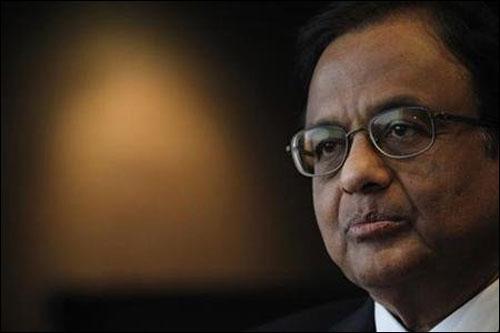 | « Back to article | Print this article |
Don't bring new taxes in Budget, India Inc tells FM
India Inc on Wednesday urged the government to keep tax rates low in Budget 2013-14 to give investments a push. It also said any new tax, such as the inheritance tax or a tax for the super-rich, should not be introduced.
In a pre-Budget meeting with Finance Minister P Chidambaram, industry representatives said the government should look at providing a stable regulatory regime in the upcoming Union Budget and not do anything that might dampen the investor sentiment or create negative perceptions about the economy.
"There should be no new taxes. We want to make sure the investment cycle returns... Inheritance tax is a bad idea. An additional tax can weaken the sentiment," Ficci president Naina Lal Kidwai said after a two-hour meeting with the finance minister.
CII President Adi Godrej said a tax stimulus would be required. He said GDP growth, and not higher taxes, would lead to better tax collection figures. "Inheritance would create negative sentiment. No country has it," Godrej said, adding the Budget should not create a negative perception like it did last time.
The industry also appealed to the finance minister to go for an early rollout of the Goods & Services Tax, arguing it was critical for industry as well as the economy's growth.
Chidambaram said the government's immediate priority was to keep the investment cycle going. He said foreign investment was not an option but an economic imperative for the government. He added there were some positive signs but no discernible trend in the economy so far.
The finance minister said the Cabinet Committee of Investment was constituted to resolve inter-ministerial issues and to speed up the clearance of projects.
"We want a predictable regulatory environment... The auto industry shouldn't be treated as a golden goose that can be taxed," Mahindra Group chairman Anand Mahindra said.
Various other suggestions were also made by the representatives of trade and industry. These include that the government could allow a two per cent interest rate subvention for all export sectors, allow 25 per cent accelerated depreciation for investment in plant and machinery for a pre-defined period of 3-5 years, monetise unutilised assets of public sector enterprises and use the revenue thus generated for investment in infrastructure.
Also suggested were acceptance of the recommendations of the Kelkar committee, start of the disinvestment process from the beginning of the financial year rather than the end, deregulation of diesel, no tax on transactions in commodity exchanges, unlocking of money stuck in tax litigation, and providing tax benefits to the MSME sector.
The meeting saw participation of 16 representatives from different organisations.

